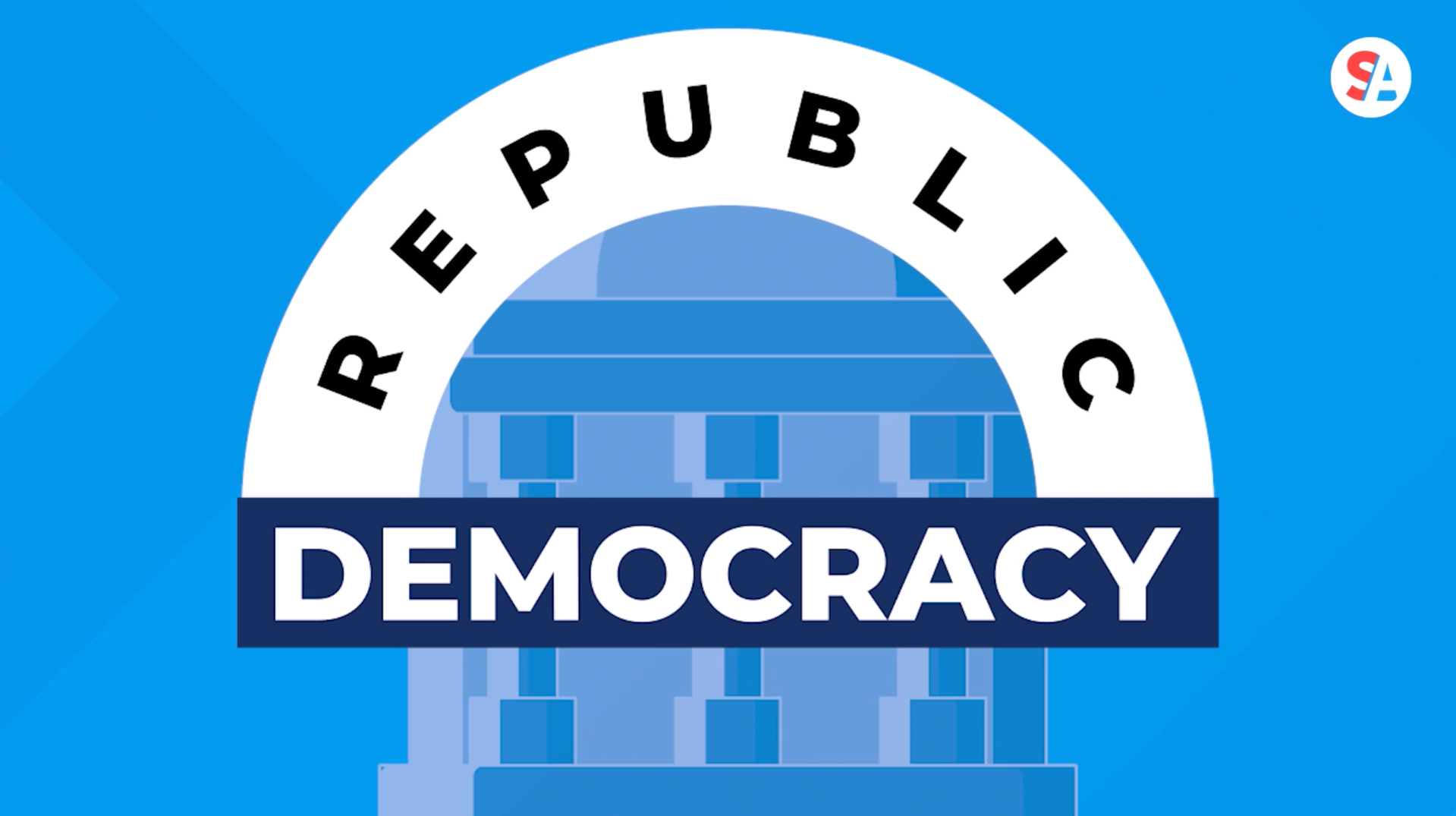
SHANNON LONGWORTH:
Is the United States a democracy or a republic? It’s an ongoing argument playing out on social media and in news op-eds nationwide. And it really took off after U.S. Senator Mike Lee Tweeted, “we’re not a democracy,” during the 2020 election.
Some Republicans say we’re a republic—not a democracy—while some Democrats say the opposite. So, which is it? That’s a question that might pop up on a high school history exam.
How do we classify the United States? A. Democracy B. Republic C. Both
Easy, right? You think, well duh, it’s a democracy. I mean, we’re a government of the people, by the people, and for the people, after all.
But, it turns out that doesn’t automatically make us a democracy…or, at least, not a “pure” democracy… because people don’t vote on every single issue. Think about a town square in ancient Greece. That could get…chaotic…pretty quickly. And, seriously, who has the time to weigh in on every single issue?
Congress considers thousands of bills a year—and that’s just at the federal level. So if we’re not a pure democracy, then what are we? Some might say that we’re, B—a Republic. Which makes sense, especially since…
KIDS: “I pledge allegiance to the flag…and to the republic, for which it stands…”
LONGWORTH: The word is right there in the pledge of allegiance. And it checks out, because–in a republic—the people hold the power, but there are also the three branches of government to provide structure and to balance that power.
Essentially, it all goes back to the fact that our country doesn’t use a one-person, one-vote system. Even in the presidential election, the popular vote doesn’t elect presidents directly — the electoral college does.
And as for Congress, while the House of Representatives gives states with more people more votes, the Senate gives states equal pull with 2 each. That’s clearly not pure democracy because California is 78 times larger than Wyoming.
So while the founding fathers absolutely wanted majority rule–as James Madison wrote in the federalist papers–they also wanted to make sure overbearing majorities wouldn’t lead to mob rule and dominate minorities. Thus, the senate and electoral college.
So obviously the US is a republic, right? Confusing, I know. Well that’s because the best answer to the question is C, both. You might call it a democratic republic.
Democracy is the underlying idea, like a foundation, while a republic is the system for making it happen—the building on top. With that being said, I asked my high school history teacher why the country’s set up like this.
VINCENT BADAGLIACCA: “It’s messy, and it can be frustrating for people. But that’s the way our founders wanted it to be. They wanted there to be real consensus on things and there to be compromise on things and they didn’t want there to be tyranny in any way, shape, or form.”
LONGWORTH: Now that we’ve cleared that up, we know how important our vote actually is and we may have a shot at passing that U.S. history exam. Got it straight? Comment below and vote on our bias meter.










